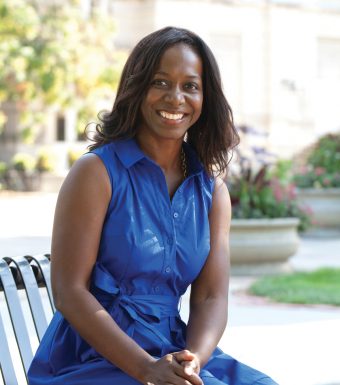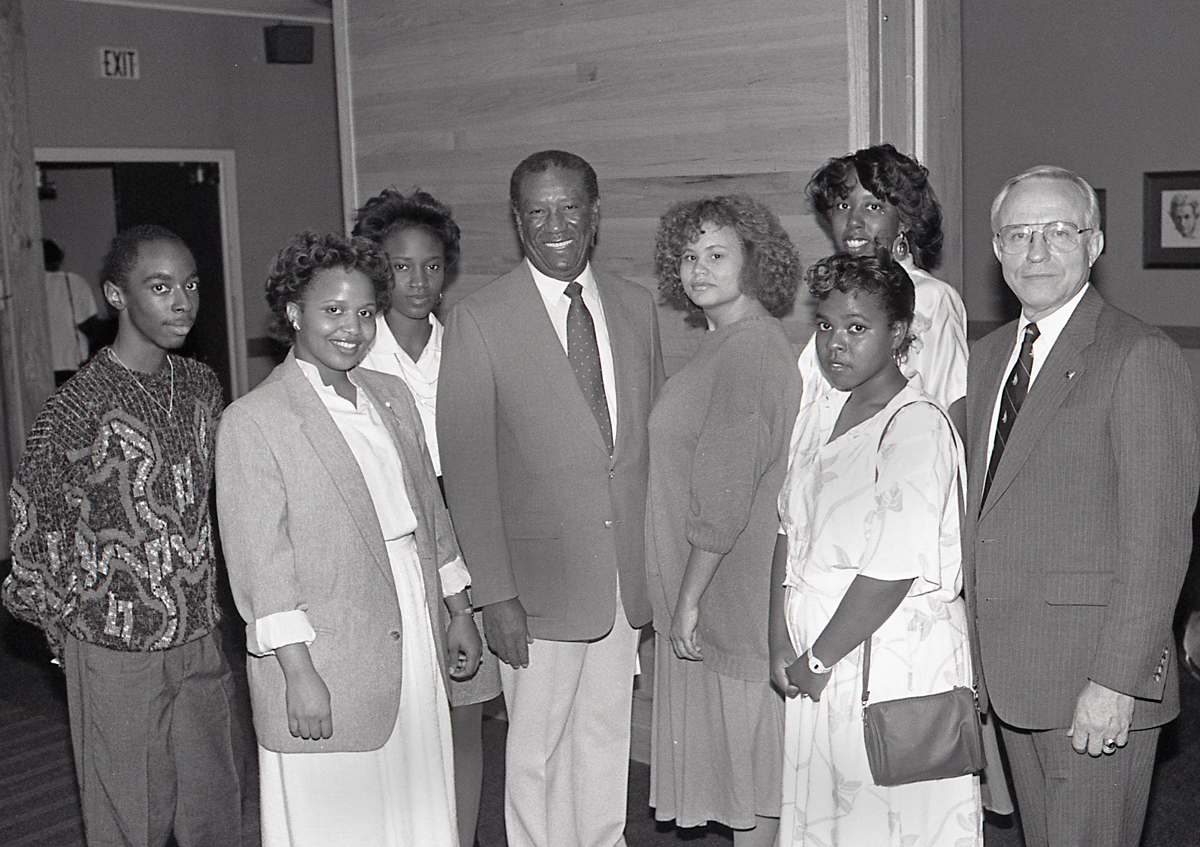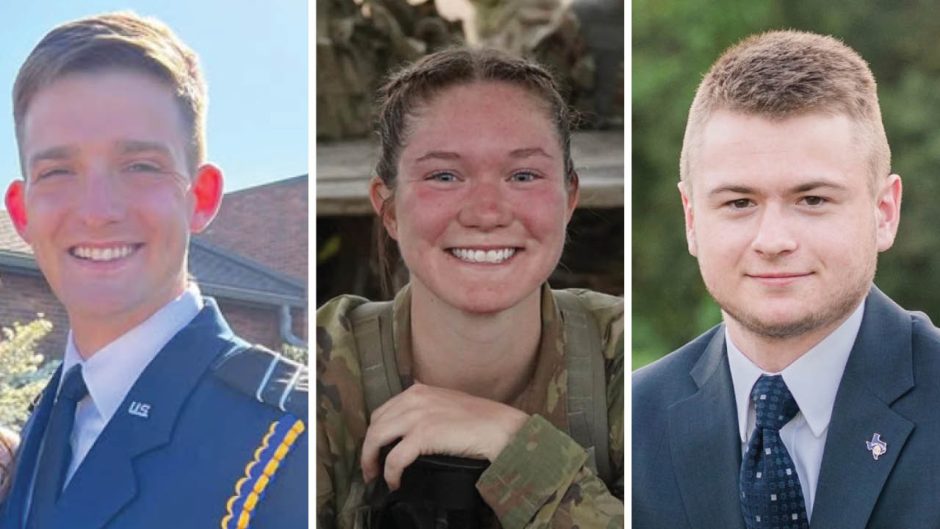Dec. 18, 2017
Story by Erik Potter
Photos by Rob Hill
It took George C. Brooks six months of soul searching before he accepted the job as an assistant director of financial aid at MU. Brooks had grown up in Columbia during segregation, when African-Americans stayed clear of campus after dark for fear of being harassed. Thirty years later, in 1964, those memories still gave him pause. But Brooks, M Ed ’58, took the plunge and ended up spending 25 years at Mizzou, including 17 years as director of financial aid. During that time, he started the university’s work-study program and helped recruit the university’s first black faculty member, Arvarh Strickland.
In 1987, the year before Brooks retired, the university named the George C. Brooks Scholarship in his honor. The university, recognizing the educational benefits of a varied student body, launched the scholarship to improve recruitment and retention of students from underrepresented racial and ethnic groups. In the intervening 30 years, Mizzou has welcomed more than one thousand Brooks Scholars — about three dozen each fall. At first, the $5,000 scholarship represented a full-ride: room, board, books, tuition — everything. Later the award increased to $8,500, and it now sits at $7,500, which covers about 70 percent of tuition and fees.
It’s impossible to say exactly how much credit the scholarship deserves for creating greater diversity on campus. But it certainly contributed to a large change. The year before the scholarship began, Mizzou’s African-American enrollment was 3.3 percent, and Hispanic enrollment was 0.7 percent. Since then, the percentage of African-Americans has more than doubled to 7 percent, and the percentage of Hispanics has more than quintupled to 3.6 percent. Despite those improvements, however, African-Americans and Hispanics are still underrepresented on campus.
To celebrate the 30th anniversary of the Brooks Scholarship, MIZZOU magazine caught up with a member of the founding class, LeAnn Stroupe, BS HES ’91, MPA ’98.

LeAnn Stroupe was in the inaugural group of Brooks Scholarship recipients. She is now the director of MU’s Office of Visitor Relations.
You Want to Give Me a What?
LeAnn Stroupe was a senior in high school, trying to figure out where she should go to college — a place neither of her parents had ever been. Her folks made enough money to support their four children in a lower–middle class life but hadn’t saved for school. Her mother, who had a high school diploma, was a food service manager. Her dad, who had quit school after the seventh grade to support his 10 younger siblings, had one of the good-paying, blue-collar jobs still prevalent in the 1980s.
Her parents had moved the family out to suburban Kansas City, Missouri, where Stroupe attended a high school for high performers. “I assumed I was going to college,” she says. “My parents assumed they would figure a way to send me.”
Unsure how to conduct a college search, Stroupe narrowed her choices to schools within a two-hour drive of home. Kansas State was a top pick simply because purple was her favorite color. But tuition costs quickly narrowed her focus to in-state public colleges, which lifted Mizzou to the top of her list.
In fact, she had already chosen Mizzou when the home telephone rang one summer day in 1987. Her mom answered it. “LeAnn, somebody from Mizzou is on the phone,” she called out.
Stroupe doesn’t remember who was on the other end of the call; she just remembers waiting for the punch line. “I’m listening to this person offering me this scholarship, and I’m thinking, ‘Who’s pranking me? Is this for real? A scholarship? How much is the scholarship?’ ”
Stroupe hadn’t even applied for a scholarship — she didn’t know how or even that she ought to. But it was the first year for the Brooks, and no formal application process yet existed. Someone at Mizzou had simply found her university application and put her name in for consideration.
Stroupe was floored. Her mom hadn’t stuck around to hear the conversation; she was downstairs doing laundry. So, after Stroupe hung up, she called down to her, “They’re giving me a scholarship! It’s not going to cost us anything!”
These days, Stroupe manages MU’s Office of Visitor Relations, overseeing a team of more than 100 student workers who give campus tours to prospective students. Looking back, she sees getting the Brooks Scholarship as a turning point.
“That changed the trajectory of my life,” she says. “It took away some of the stress and worry about my parents paying my tuition. It let me not work, join clubs and connect to Mizzou — something I’ve seen a lot of African-Americans not be able to experience. I felt blessed.”

Brooks, center, and former Chancellor Haskell Monroe, far right, honor Kansas City recipients of the Brooks Scholarship in 1988. Recipients, from left to right, include Kevin Roberts, BS BA ’92; LeSandra Pearl Morrison, BA ’92, JD ’95; Leslie Lapsley; Sharon Combs Leber, BS HES ’97; Richonia Freeman, BS Che ’93; and Leigh Williams, BA ’92.
To read more MIZZOU magazine stories online, visit mizzou.com.





